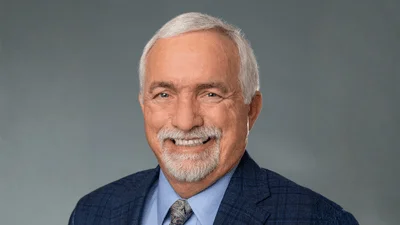The United States continues to face challenges in its commercial shipbuilding sector, as highlighted during a recent subcommittee hearing of the Senate Committee on Commerce, Science and Transportation. Senator Maria Cantwell (D-Wash.), Ranking Member of the committee, hosted Tuuli Snow from Seattle-based Snow & Company to discuss efforts to revitalize the industry.
Senator Cantwell pointed out the stark contrast between U.S. shipbuilding output and that of other nations. In 2022, only five commercial ocean-going ships were under construction in the U.S., compared with China’s 1,794. She said, “If we do not…revive our shipbuilding capacity, our nation will not be able to compete at this particular moment in the Pacific. That puts our economy at risk, it creates a dangerous weakness in our national defense, so we must continue to protect the Jones Act, expand and streamline Title XI loan guarantee program, and modernize our infrastructure.”
Cantwell also noted the economic significance of Washington’s maritime sector: “In the State of Washington, the maritime sector supports 174,000 jobs through maritime logistics, shipping, ship building, seafood, maritime transportation, and associated trades. In total, the sector supports $45 billion of economic revenue, and shipbuilding in particular [provides] good family wage jobs with an average salary of $120,000 -- can you imagine that? An average job.”
Tuuli Snow discussed her company’s approach to workforce development: “A lot of our growth has been due to a deeply innovative change that I have made in focusing on hiring from non-traditional avenues. We hire veterans, immigrants, refugees, individuals coming out of prison or starting work release and seek people from communities that have traditionally been overlooked or excluded from the maritime industry.” She added: “I often say that I play for the maritime long haul, not just for our company, investing my time and energy into building a better industry, not just a better business.”
Snow & Company is among Seattle's last independent boat builders. The firm began over two decades ago as a one-person repair shop along Lake Washington Ship Canal and now employs more than 100 workers. Its projects include constructing hybrid vessels for federal agencies and electric tugs for clients in California.
Federal support has played a role in expanding operations at Snow & Company. In July 2025 they received $817,150 through the Maritime Administration Small Shipyard grant program for new equipment purchases after Congress increased funding for this initiative by 50 percent via legislation negotiated by Senator Cantwell.
Responding to Senator Cantwell about how this grant affected their business operations and workforce training potential within Snow & Company: “For just this one specifically,we hired 15 to 20 more people,and then it has changed the track of other people's career paths where they get to learn more and new diverse things.It also would allow us -- if we received another -- would allow us to create our own in-house apprenticeship program where we could allocate those funds specifically just for a teacher and educator,” Ms.Snow said.
Despite these positive developments at individual firms,the broader American industry remains far behind global leaders.According to data shared during testimony,in addition to China’s output,South Korea had 734 ships under construction Japan had 587 Europe had 319 while US numbers remained stagnant.Major Asian economies account for over ninety percent world shipping tonnage;the US produces only about point two percent.
Efforts are underway nationally as well.The White House announced an executive order as part of its Maritime Action Plan aimed at revitalizing domestic maritime industries.Although details are still pending,Cantwell described it as an opportunity for bipartisan action supporting workforce development competitiveness,and sector growth.
Washington state relies heavily on steel and aluminum imports across multiple industries including shipbuilding.In 2024 alone,such imports totaled $1.21 billion.Tariffs imposed since 2018—most recently President Trump’s twenty-five percent levy on steel—have negatively impacted domestic producers including agricultural exporters facing retaliatory measures abroad.As noted during discussion,U.S.shipbuilders faced substantial difficulties following implementation earlier this year.








